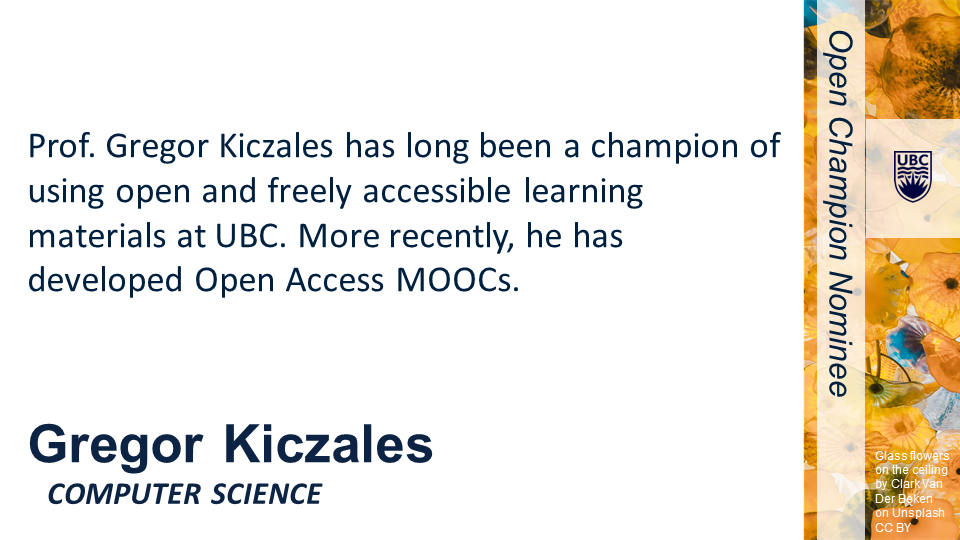This week, we hear from Gregor Kiczales, Professor of Computer Science.
~~~
What motivated you do adopt/adapt/create open educational resources in your work?
For me it’s the only real option. I’ve been delivering my work as open source artifacts since 1987 – PCL was an early object-oriented programming language. I first learned the importance of open research results from my MIT advisor Hal Abelson, who went on to be a founder of Creative Commons.
Can you tell us about the open education projects you have been working on?
We have developed a MOOC (massive open online course) based on and supporting Computer Science 110. The online course provides videos, reference material, short drill problems, and a bank of practice design problems. For the past 5+ years, all UBC CPSC 110 students have taken the course in flipped form, with the MOOC providing pre/post lecture work, and the lectures focusing on applying/elaborating techniques first introduced in the videos. Several other universities assign the material in their classes, and many others learn with the material unofficially. More recently we have built on our success with the 110 MOOC to develop MOOCs for the next two courses in the software engineering series.
What benefits have you seen from using open educational resources in the classroom?
The immediate benefit is that UBC students save 100 or more dollars each not having to buy a textbook. But the larger benefit has been the shift in class and office hours towards working with rather than presenting the techniques the course develops. There’s no need to review terminology or presentation of details when all that material is available on video.
What was the biggest challenge you faced and how did you overcome it?
Open artifacts aren’t static – you don’t ship them and then move on. Instead you are constantly fielding comments, requests, criticisms an the like. One of the following is always true: there is a community and you are answering those queries and revising the artifact (good); the community lives without you, and others are handling the queries (great), or the community isn’t alive and there are no queries to answer.
Do you have any advice for other faculty developing OER?
Decide early on whether the goal is making it free for your students, or seeking to develop an open style community of users.
~~~
Thank you, Gregor, for taking the time to participate!

